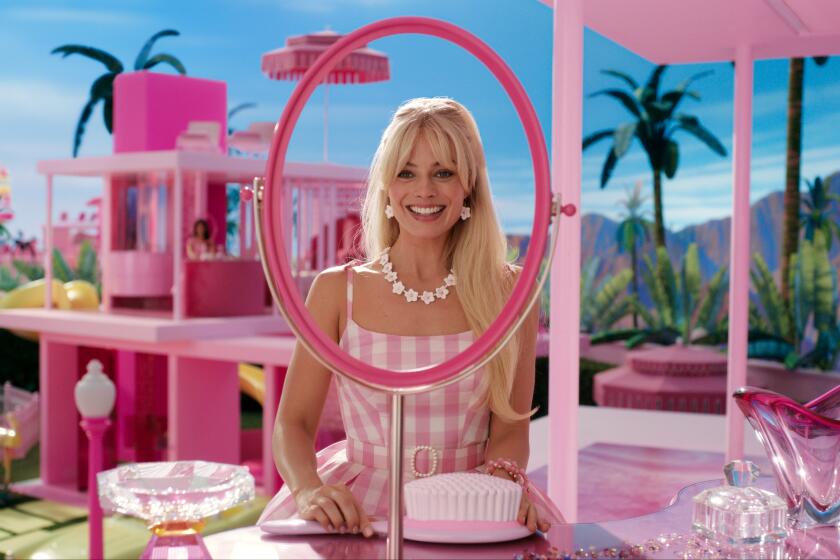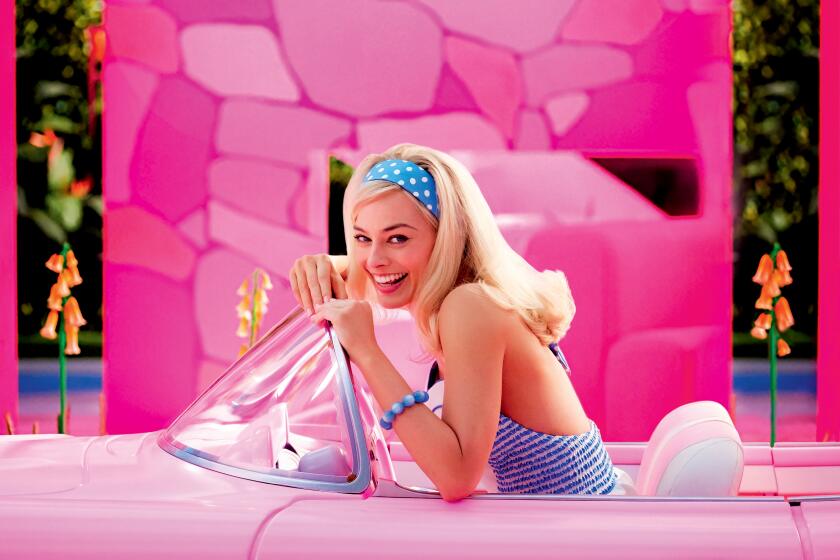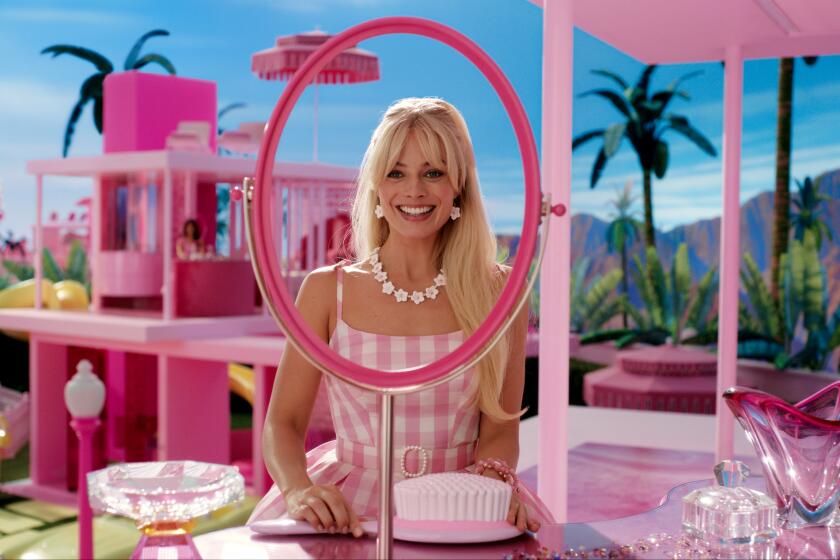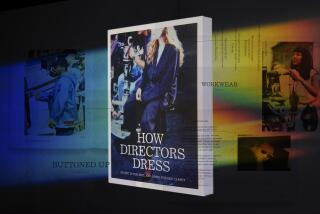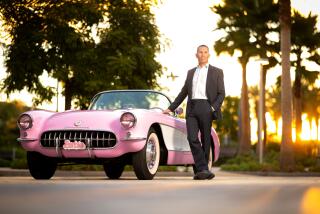Opinion: ‘Barbie’ is barreling into awards season. Is its empowering message all it’s cracked up to be?
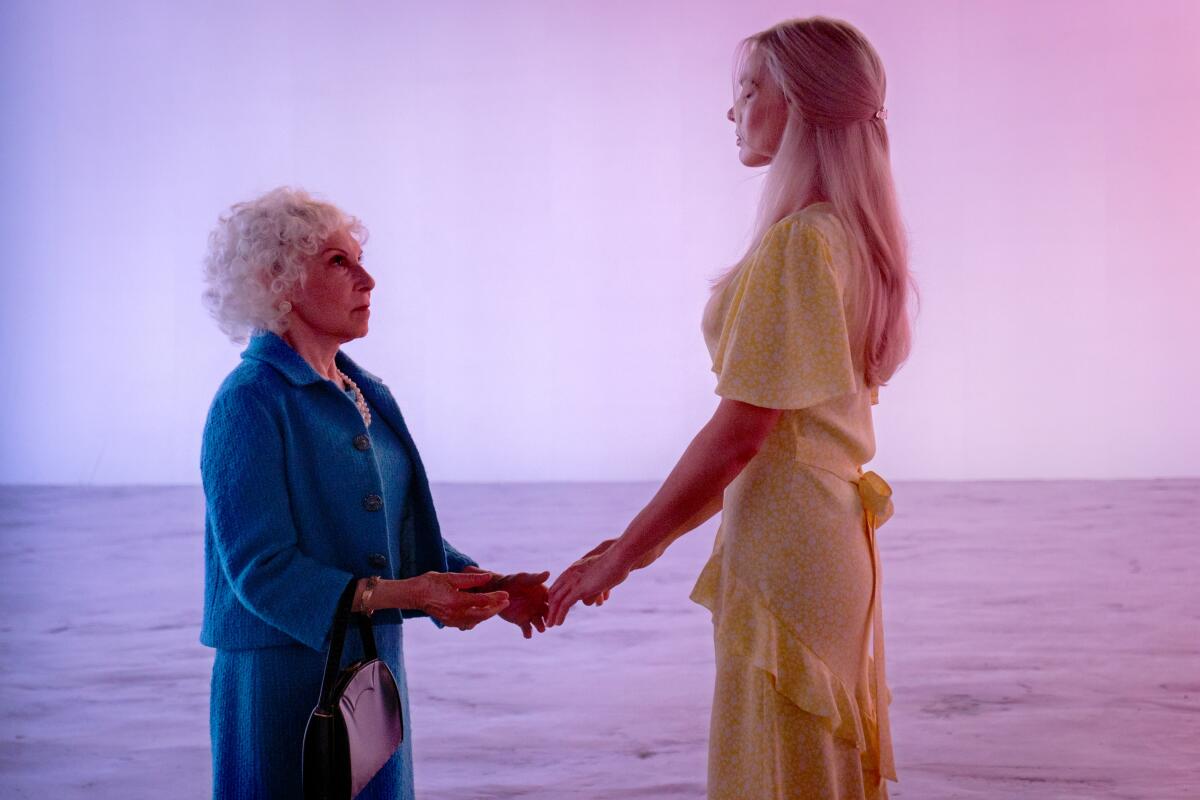
- Share via
I’m not a Barbie fan. She made me and my friends feel bad about ourselves for being built like real girls, back in the day. I only reluctantly watched the movie, once it was free on a streaming service, so I could participate in the national debate.
And then I got seduced, a little bit, by the movie’s sly, subversive charm. Recently, younger women have explained to me that feminism is irrelevant to their lives, so I am grateful when a $145-million movie makes its case. That’s some megaphone.
Barbiephobes might say I became a feminist despite Mattel’s sexist grooming. They probably never played with Barbie.
By the time Rhea Perlman showed up as the ghost of Barbie’s creator, Ruth Handler, I was on board as much as someone who never wears pink could be.
Who wouldn’t want Perlman/Handler as their Jewish grandma Obi-Wan, encouraging and kind, determined and sweet, a hero to women everywhere. She was exactly the guiding light a doll needed to cross the Barbie Land/Los Angeles barrier, from the land of perfection to the land of cellulite and mortality. Or she was until she said, “We mothers stand still, so our daughters can look back to see how far they’ve come.”
Hang on a minute. We do what, and why? Let’s fact-check that one.
The much-memed, long-awaited feature from director Greta Gerwig is a delightful comic fantasy that promotes and deconstructs its own Mattel doll brand.
Handler was born in 1916; her generation had little choice but to stand still in many ways because they were supposed to be full-time homemakers. Handler ignored gender destiny, however. She started working at 18, created Barbie and then, after a breast cancer diagnosis, developed a better-fitting prosthetic whose customers included First Lady Betty Ford. World War II opened a temporary, Rosie the Riveter window of job opportunity for some of her contemporaries, but once soldiers returned from the front it was a woman’s patriotic duty to surrender her job to its rightful owner and head back home. Moms stood still more by default than by choice.
Their daughters, the baby boomers, stormed the workplace and turned to legislation and lawsuits to gain a stronghold there — and many of us have refused to stand still to this day. If our daughters look back to see us planted in one spot they’re going to be disappointed; they’ll have to find another way to measure their progress.
The two sides of “Barbie”: A vivid story about the social pressures on women, men and children; and the playful pink product marketing campaign.
What kind of reference point would my generation of women be, after all, if we traded in our momentum to become highway mileage markers?
I felt more than a little bit betrayed because I always thought the best role models inspired by example. And I was angry at myself for falling under the movie’s spell, only to be blindsided by a soft-focus greeting-card sentiment that didn’t hold up to scrutiny and sounded more than a little retro.
I wondered if I’d misunderstood. I hoped I had — enough so that I watched “Barbie” again, this time the version that included director Greta Gerwig’s play-by-play commentary. (Yes, I watched a movie I didn’t want to watch, twice. Sisterhood is powerful, and all that.)
With ‘Barbie,’ it seems director Greta Gerwig wanted to comment on our youth-obsessed culture and remind us that there is beauty in people of all ages.
I am relieved to say that my interpretation of the “stand still” line was not what Gerwig intended. She was thinking of two personal experiences: The first, when she watched her young kids run around like crazy safe in the knowledge that Mom, their North Star, had not moved; and the second, her grandmother’s death.
That’s not what came through. We all stand still at one time or another, but Gerwig’s first example was a temporary choice by a busy working-mom, and the second involved no choice at all. Neither one is the equivalent of being our daughters’ GPS.
I’ll concede that my indignation is in part a function of being old enough to be Gerwig’s mother. My generation can be hypersensitive to push back about women’s roles, as the list of problems to be solved — access to choice, an enduring gender pay gap — seems to grow rather than shrink.
Hot takes, cold takes, pink takes, patriarchy takes, mother/daughter takes: ‘Barbie’ offers grist for every media mill
Consider Gerwig’s backyard, for another example: Despite the blinding success of “Barbie,” Hollywood remains a dug-in patriarchy, far likelier to hire Ken than Barbie. In a just-released study, the Center for the Study of Women in Television and Film gave us the grim numbers: Of the 250 top-grossing films last year, 16% were directed by women, a 2% dip from 2022. The peak achievement for women in film? They represented 26% of producers last year.
Greta Gerwig, like Ruth Handler, is the exception that proves the rule.
I’m glad feminism got a push in “Barbie.” I’m glad Gerwig was not suggesting we put on the brakes. It’s too soon for any women — moms, not moms, girls, grandmas — to stand still. I hope Barbie’s visit to the gynecologist is just the beginning of her quest. I hope she goes out and gets a job.
Karen Stabiner is a journalist, novelist and the author of six nonfiction books.
More to Read
A cure for the common opinion
Get thought-provoking perspectives with our weekly newsletter.
You may occasionally receive promotional content from the Los Angeles Times.

